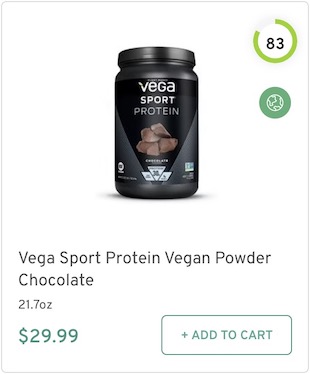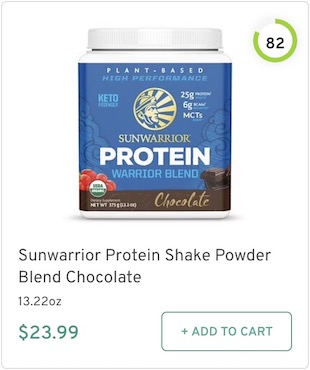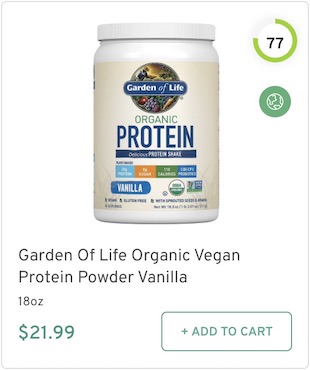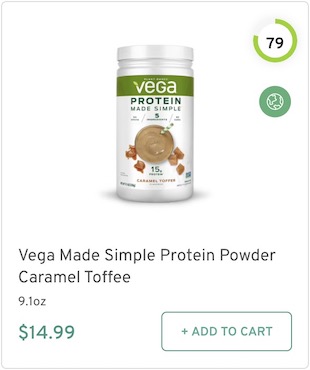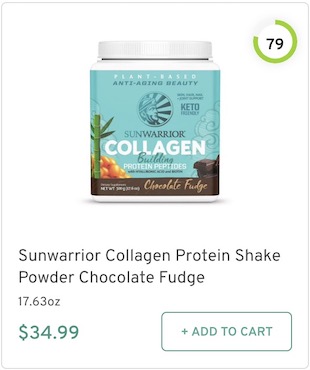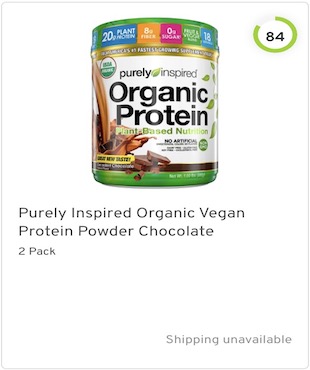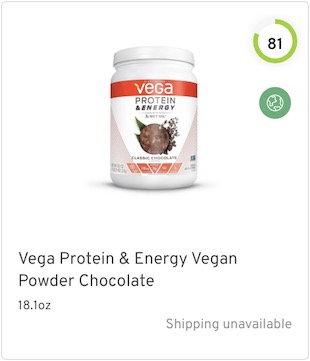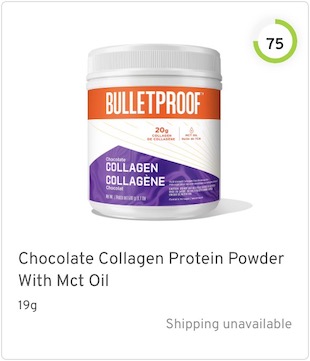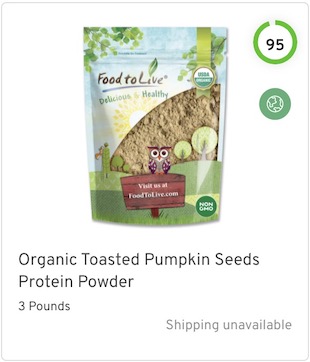Try our new free GreenChoice - Food Scanner mobile app!
DOWNLOAD-
-
-
Diets
Allergies
Take our 30-second quiz & we’ll filter our site to show only products that match your dietary preferences.
- GCNow
- 9 Protein-Packed Lactose-Free Protein Powder Brands
9 Protein-Packed Lactose-Free Protein Powder Brands
Authors: Katherine Stallard, Sydney Wexler and Merve BasogluPublished: August 20, 2021
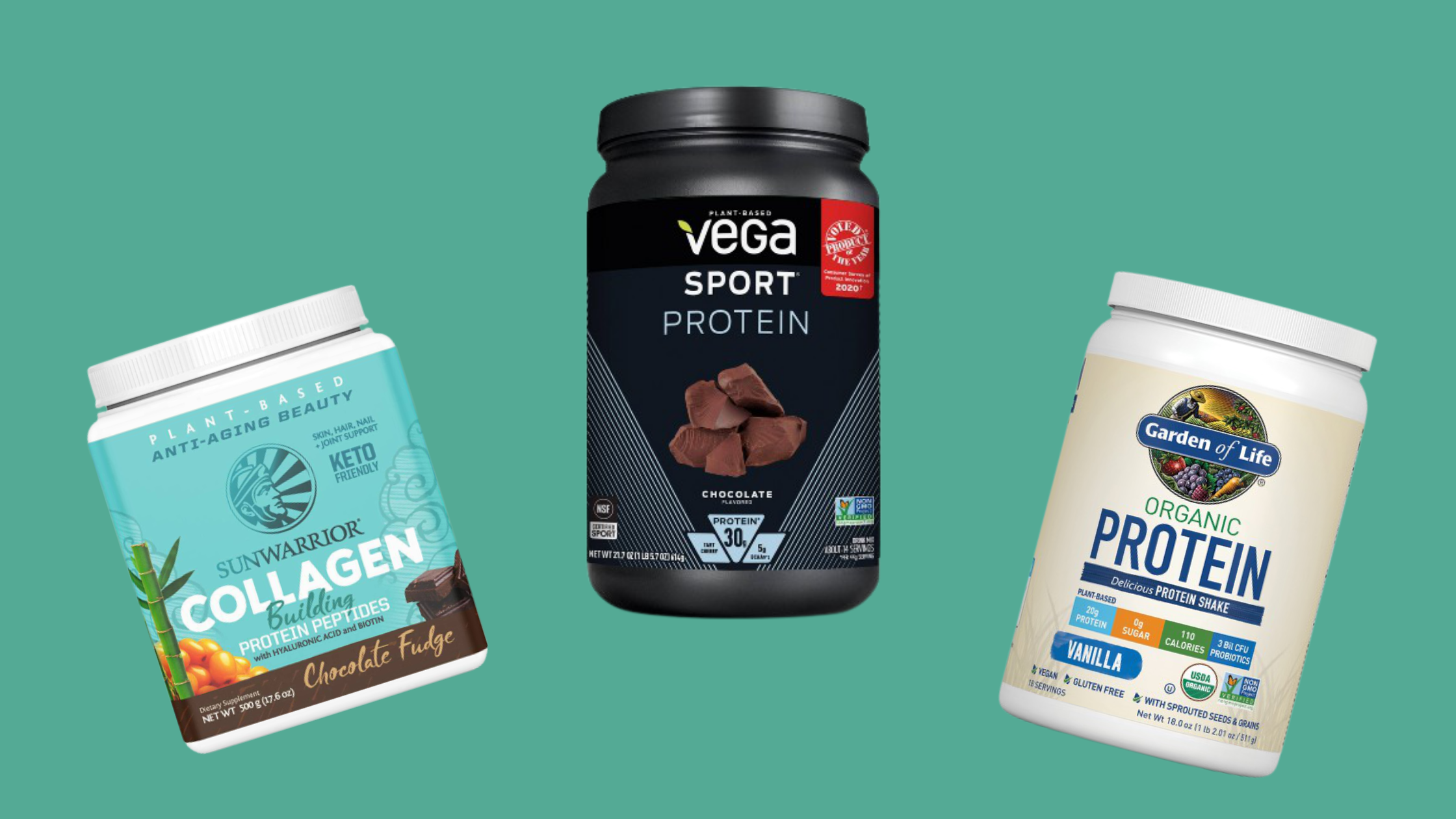
Whether you’re a highly skilled athlete, avid gym-goer, fitness newbie, or somewhere in between, chances are you’ve come across those massive tubs of protein powder and wondered if they have a place in your daily routine.
Protein powder has proven itself as a convenient way to supplement protein intake – two in five (46%) Americans say they regularly consume protein drinks and shakes (1).
That extra boost of nutrition that comes from protein powders can have important health benefits, especially for those looking to build lean muscle, don’t have enough protein in their diet, or need to incorporate food choices that are more satiating. Choosing a meal that’s higher in protein can satisfy your hunger faster and keep you fuller for longer (2). Protein also contributes to muscle recovery, growth, and maintenance during and post-workout (3).
But for those with an intolerance to lactose — or are eating dairy-free for another reason — protein powders pose a whole new set of challenges, as they often use dairy-based ingredients as the primary source of protein.
Many protein powders contain whey powder, a byproduct of milk and cheese. Even if whey isn’t the main ingredient in the protein powder, lactose and dairy-related products containing lactose can sneak up in the sometimes extensive and overwhelming ingredient lists on protein powder packaging.
Whether you’re lactose-free because of an intolerance or are trying to avoid dairy altogether, our selection of 9 lactose-free protein powders ranked by their protein content is sure to help keep your body nourished and energized.
Choosing a lactose-free protein powder
- Protein content. A high-quality protein powder should contain more than 20% of the recommended Daily Value (DV) (4). In place of whey, protein powders that are dairy-free use amino acids isolated from plant-based ingredients. Common sources include pea protein, soy protein isolate, hemp protein and brown rice protein, as well as legumes, nuts, seeds, and high-protein grains (5).
- FDA regulations on supplements. The FDA leaves it up to manufacturers to evaluate the safety and labeling of dietary-related products. That means that the FDA won’t check a product’s claims unless there’s reason to believe the product is misbranded, and even then, the product will already be on the market. Do your research on protein powder brands and any supplements you take to make sure it’s doing what it claims and that it won’t cause harm to your body (6).
- Added sugar. Protein powders are packed with added vitamins and minerals, but they can also be packed with many added sugars and artificial flavorings. The FDA recommends the daily intake of added sugar be no more than 10% of total calories per day, so be mindful of your added sugar intake and read the ingredients on the label for any other hidden additives (7, 8).
GreenChoice Picks
1. Vega Sport Protein Vegan Powder Chocolate
This plant-based protein powder provides 30g – 60% DV – of protein per serving. Also, it’s an excellent source of iron offering 30% DV of iron. It contains stevia as a sweetener.
2. Sunwarrior Protein Shake Powder Blend Chocolate
This organic protein powder contains 25g of plant-based protein per serving. In addition, one serving of this protein powder offers 6g of BCAA’s which help the recovery process after exercise.
3. Garden Of Life Organic Vegan Protein Powder Vanilla
Garden of Life’s organic protein shake provides 20g – 40% DV – of protein per serving. Also, it comes with the benefits of probiotics.
4. Vega Made Simple Protein Powder Caramel Toffee
This plant-based protein shake is made with only 5 ingredients: pea protein, cane sugar, coconut cream powder, natural flavors, and sea salt. It offers 15g – 21% DV – of protein per serving and includes 5g of added sugar.
5. Sunwarrior Collagen Protein Shake Powder Chocolate Fudge
This plant-based protein powder contains collagen-building protein peptides which help promote collagen production in the body. It provides 14g – 10% DV – of protein per serving. It’s packed with hyaluronic acid, biotin, and silica to support hair, skin, and nails.
More Lactose-Free Protein Powders
6. Purely Inspired Organic Vegan Protein Powder Chocolate
This vegan protein shake provides 17g of plant-based protein and 6g of fiber per serving. It’s free from artificial flavors or sweeteners.
7. Vega Protein & Energy Vegan Powder Chocolate
Vega’s protein shake provides 20g – 26% DV – of plant-based protein from pea protein. Also, it offers 100mg caffeine and 3g of MCT oil per serving which makes this perfect for a pre-workout shake.
8. Chocolate Collagen Protein Powder With Mct Oil
This dairy-free collagen protein powder claims to support healthy skin, bone, and joints. 2 scoops of this powder contain 19g of protein and 20g of collagen. Also, it’s packed with MCT oil to provide energy.
9.Organic Toasted Pumpkin Seeds Protein Powder
Food to Live’s protein powder is made only with organic pumpkin seeds so it’s free from artificial additives, flavors, or sweeteners. It provides 18g – 36% DV – of protein per serving. Also, it’s packed with iron, zinc, phosphorus, and magnesium.
.
Key Takeaways for Choosing a Lactose-Free Protein Powder
With so many options, finding a protein powder that fits your needs can be challenging. Each protein powder advertises its own set of ingredients, flavors, and benefits, and sometimes it can be hard to decipher what it all means — especially with dietary restrictions like lactose-free, dairy-free, or vegan.
When choosing a lactose-free protein powder, choose one that contains ≥20% of the daily value of protein from plant-based protein sources.
Protein powder’s FDA certification as a supplement also doesn’t necessarily mean the packaging and claims on its labels are accurate. To avoid being subject to misbranding, do your research beyond reading the label to discover which protein powders are best for your body and needs.
Protein powder can also hide a lot of added sugars and artificial flavorings alongside its vitamins and nutrients. Be conscious of how much sugar your protein powder has and consume in moderation.
Next time you’re shopping for a lactose-free protein powder, keep this list of products and tips in mind to skip the confusion but maintain the gains.
***
GreenChoice, PBC has evaluated and rated more than 340,000 food & beverage products across hundreds of attributes related to diet, health, and sustainability. Easily find the best products for you, the planet, & your budget. Sign up to access the GreenChoice marketplace, the first carbon-neutral online grocery marketplace for healthy, climate-friendly shopping.


